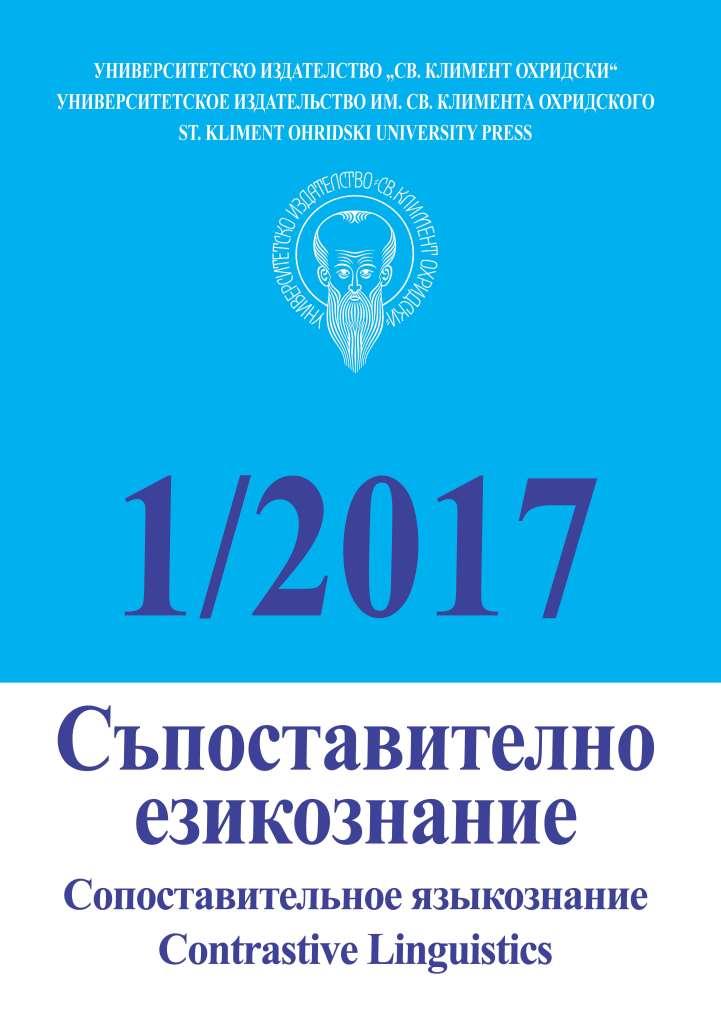За категориите евиденциалност и модалност в българския език от гледище на теорията на речевите актове
On the categories of evidentiality and modality in Bulgarian from the perspective of speech act theory
Author(s): Hilmar WalterSubject(s): Language studies, Language and Literature Studies, Theoretical Linguistics, Applied Linguistics, Philology
Published by: Софийски университет »Св. Климент Охридски«
Keywords: evidentiality; archimood; renarrative forms; intralingual translation
Summary/Abstract: The paper discusses the paradigm of special verb forms for rendering the utterances of others in Bulgarian, frequently dubbed with the term “renarrated/renarrative mood” or “l-periphrasis without the auxiliary verb съм” from the point of view of the most recent findings of cognitive linguistics. Within the confines of the conceptual domain evidentiality, which is to be distinguished from epistemic modality, the existence of “an archmood” is postulated in the verbal system of Bulgarian. Since in the use of such forms, both from the point of view of conceptual structure and linguistic semantics, what happens is the rendering of the utterances of others, it is assumed that the rule in such cases is intralingual translation. This affects a lot of the features of the relationship between the ownership of the speech act and the grammatic and semantic structure of the quoted utterance of another and its rendition via forms from the paradigm of renarrative mood. This involves complex cognitive operations, which is of marked significance for people learning Bulgarian.
Journal: Съпоставително езикознание / Сопоставительное языкознание
- Issue Year: 2017
- Issue No: 1
- Page Range: 51-58
- Page Count: 8
- Language: Bulgarian
- Content File-PDF

